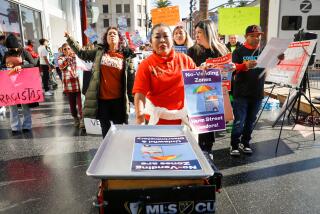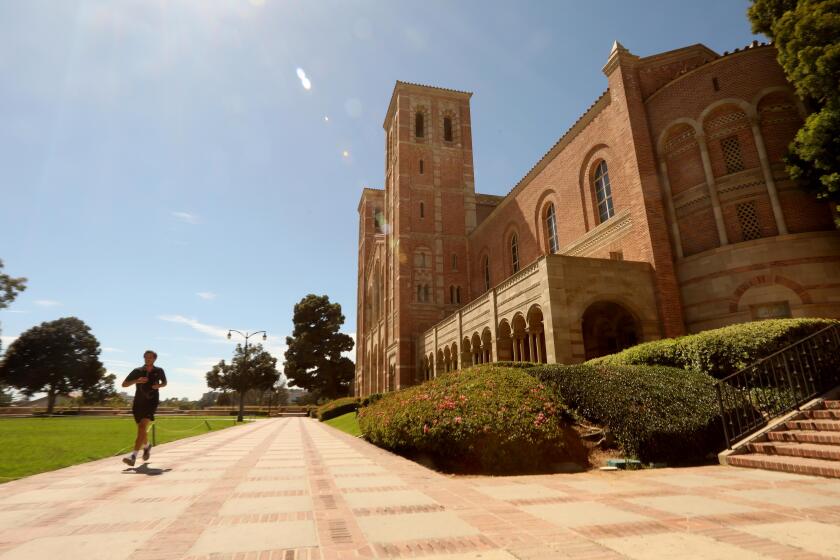LAPD won’t pursue red-light camera tickets in court
Los Angeles police will not pursue through the courts scores of motorists with unpaid tickets from the city’s defunct red-light camera program.
The city Police Commission voted this week to end its contract with the company that operated L.A.’s cameras until they were shut off last summer. And authorities are now planning to reassign a small group of officers who regularly appeared in court to testify in contested photo enforcement cases.
With the cancellation of the contract, officers will no longer have easy access to the photo and video evidence that courts require.
“We are not going to pay the contractor to support the system anymore,” said LAPD Officer Michael Gregg, who has worked in the red-light camera program for the last four years. “Without that contract, we don’t have access to the data.”
After months of debate, the City Council voted in July to shut down the controversial program. Some officials publicly derided the steep red- light camera fines, which often topped $500, as “voluntary” because county courts were not aggressively penalizing those who simply ignored the citations.
The city stopped issuing tickets July 31. At the time, there were about 65,000 tickets outstanding, representing a large pot of potential revenue for the city. It was not clear Wednesday how many tickets remained unpaid.
But the department’s net revenue from the program declined from $107,192 in September 2011 to $7,452 in January 2012.
Charles Territo, a spokesman for the contractor, American Traffic Systems, said his company previously provided Los Angeles police with “evidence packets and the information they needed to adjudicate the violations.”
“Absent a contract, it’d be very difficult for them to do that,” Territo said. “They essentially will have data, but what they don’t have is the software or the ability to support the data.”
The net effect could be that many of the city’s remaining contested camera tickets involving a trial will be dismissed. That’s because defendants would be arguing a one-sided case, with no police officer present to enter evidence of a violation, officials acknowledged.
“If there’s nobody there to prosecute the case, then in all likelihood the case would be dismissed,” said Mary Hearn, a spokeswoman for the Los Angeles County Superior Court.
Court officials warn that paying red-light camera tickets is not voluntary and that there can be financial and legal consequences for those who fail to resolve their cases in court.
People who ignore red-light camera tickets will receive a court notification. If they again do not respond, a $300 charge will be added to the ticket.
The matter will eventually be referred to a collection agency, which will also try to seek payment. But the Superior Court does not send information on camera tickets to the state Department of Motor Vehicles, meaning the outstanding ticket might not affect a driver’s license, credit rating or insurance.
Hearn warned motorists that unpaid tickets remain in the court’s system as unresolved. That could be a problem, she said, “if you get a subsequent ticket for some other kind of violation.”
An unresolved ticket can also show up in a background check, she said.
In addition, Hearn stressed that red-light camera programs continue to operate in a number of cities other than Los Angeles and that the court’s enforcement procedures apply to everyone who receives a ticket in the county.
Times staff writer Anna Gorman contributed to this report.
More to Read
Sign up for Essential California
The most important California stories and recommendations in your inbox every morning.
You may occasionally receive promotional content from the Los Angeles Times.










